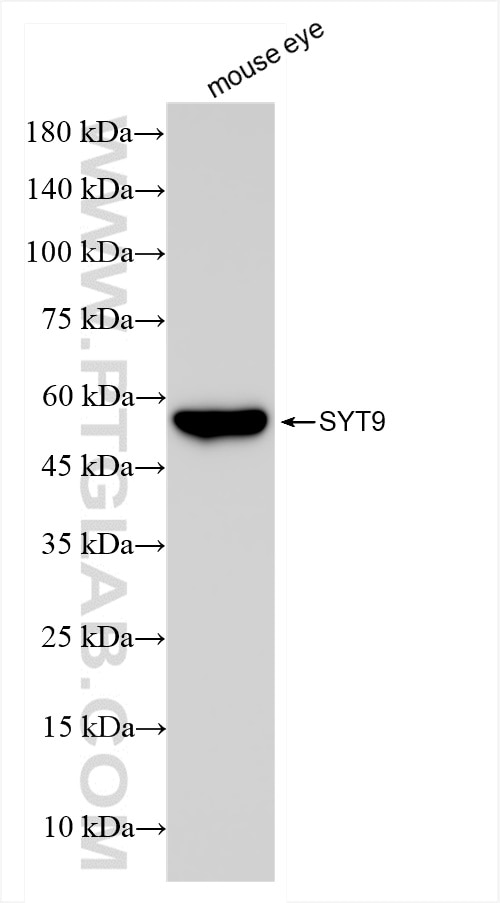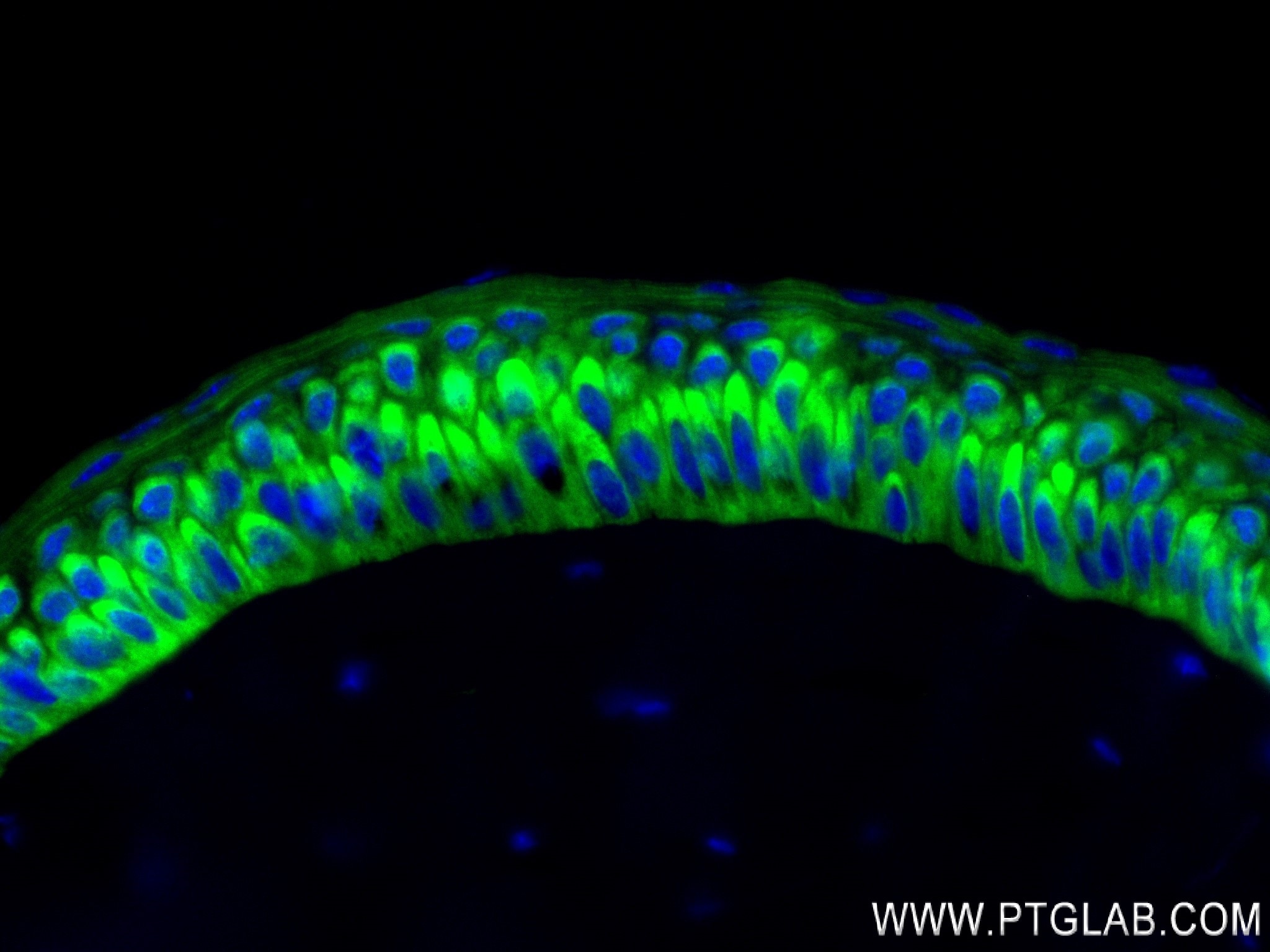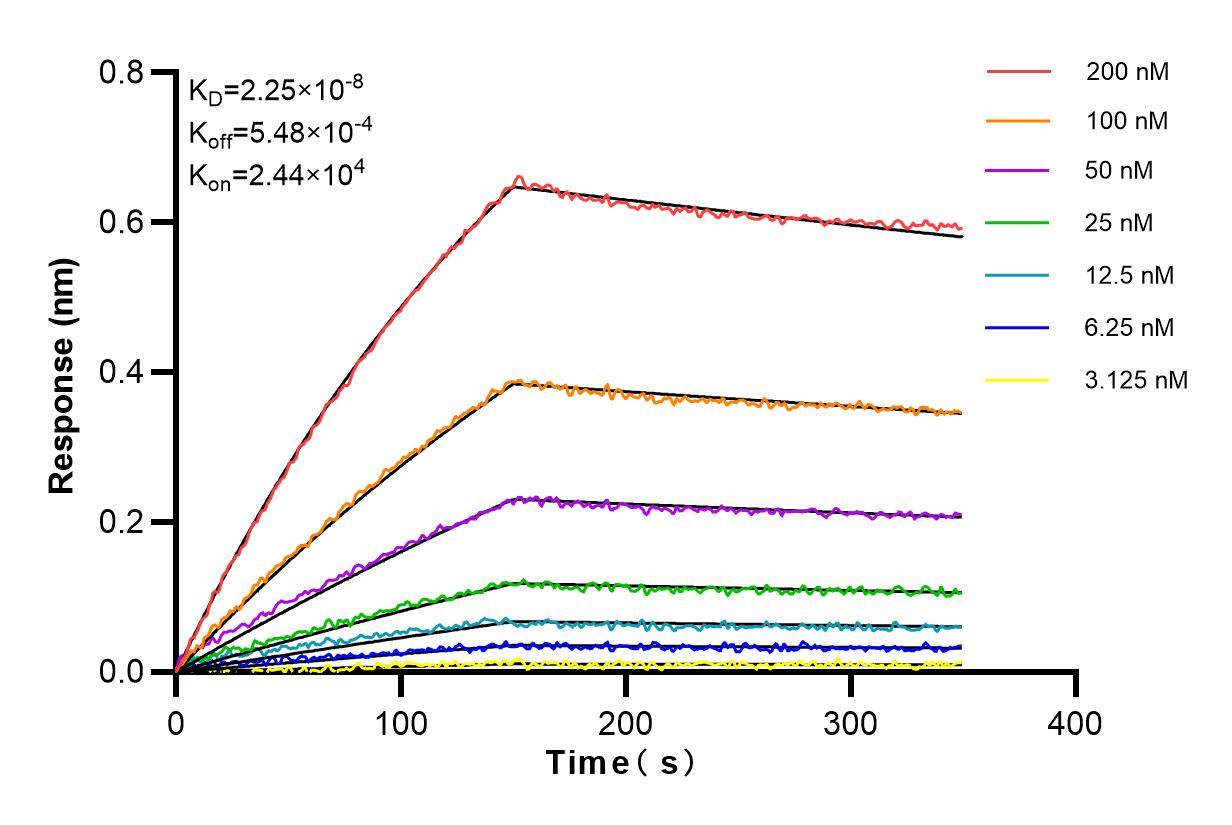Tested Applications
| Positive WB detected in | mouse eye tissue |
| Positive IF-P detected in | mouse retina tissue |
Recommended dilution
| Application | Dilution |
|---|---|
| Western Blot (WB) | WB : 1:5000-1:50000 |
| Immunofluorescence (IF)-P | IF-P : 1:250-1:1000 |
| It is recommended that this reagent should be titrated in each testing system to obtain optimal results. | |
| Sample-dependent, Check data in validation data gallery. | |
Product Information
84123-3-RR targets Synaptotagmin-9 in WB, IF-P, ELISA applications and shows reactivity with human, mouse samples.
| Tested Reactivity | human, mouse |
| Host / Isotype | Rabbit / IgG |
| Class | Recombinant |
| Type | Antibody |
| Immunogen | Synaptotagmin-9 fusion protein Ag3520 Predict reactive species |
| Full Name | synaptotagmin IX |
| Calculated Molecular Weight | 491 aa, 52 kDa |
| Observed Molecular Weight | 52-56 kDa |
| GenBank Accession Number | BC029605 |
| Gene Symbol | Synaptotagmin-9 |
| Gene ID (NCBI) | 143425 |
| RRID | AB_3671684 |
| Conjugate | Unconjugated |
| Form | Liquid |
| Purification Method | Protein A purfication |
| UNIPROT ID | Q86SS6 |
| Storage Buffer | PBS with 0.02% sodium azide and 50% glycerol , pH 7.3 |
| Storage Conditions | Store at -20°C. Stable for one year after shipment. Aliquoting is unnecessary for -20oC storage. 20ul sizes contain 0.1% BSA. |
Background Information
The synaptotagmins are integral membrane proteins of synaptic vesicles thought to serve as Ca(2+) sensors in the process of vesicular trafficking and exocytosis (PMID: 8058779). Synaptotagmin-9 (SYT9) is a tandem C2 domain Ca 2+ sensor for exocytosis in neuroendocrine cells (PMID: 36732068).
Protocols
| Product Specific Protocols | |
|---|---|
| WB protocol for Synaptotagmin-9 antibody 84123-3-RR | Download protocol |
| IF protocol for Synaptotagmin-9 antibody 84123-3-RR | Download protocol |
| Standard Protocols | |
|---|---|
| Click here to view our Standard Protocols |







